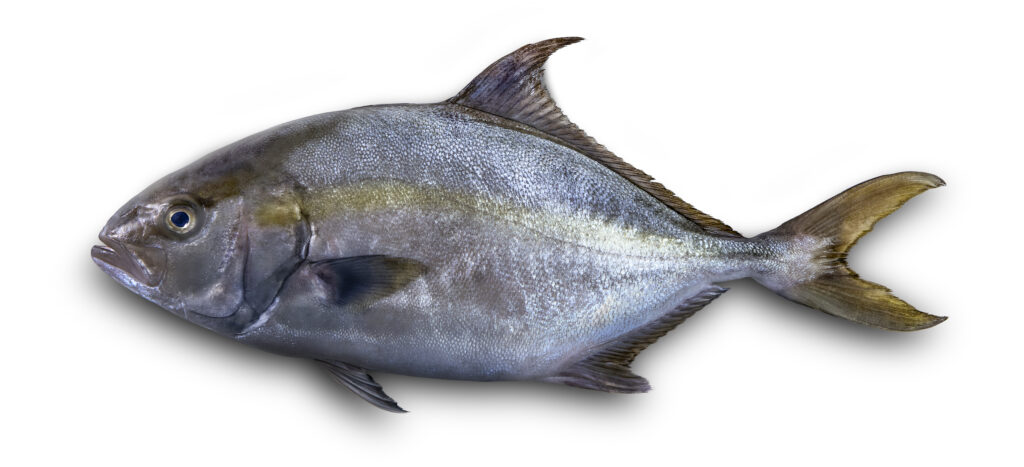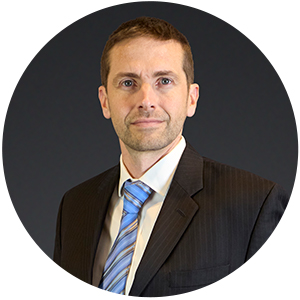Yes, we kanpachi!

Any connection between aerospace engineering and ocean fish farming may not be an obvious one, but the results of a crossover between the two will soon be evident on the plates of upmarket sushi restaurants.
Forever Oceans is an aquaculture company farming kanpachi (Seriola rivoliana), also known as longfin yellowtail or almaco jack, in offshore pens in deep water. This summer has seen its first ever commercial harvest.
The company is a spin-off from Lockheed Martin, better known for its aerospace, helicopters, air defence systems and, recently, for NASA’s Orion spacecraft. Lockheed set up a Mobile Fish Pens arm to apply its expertise in aerospace engineering to the problem of food security, by building pens that can function in offshore, high energy locations. That business, backed by venture capital, is now Forever Oceans.
Lockheed business leader Jason Heckathorn, who started the Mobile Pens business, led the spin-off from Lockheed and is now Forever Oceans’ Chief Sustainability Officer – his Lockheed colleague Mathew Goldsborough is Chief Technology Officer.
The company’s Chief Executive Officer is Bill Bien, former CEO at the Agricultural Lighting Division of Signify, formerly the lighting business of Philips. Prior to that, he was Signify’s Chief Strategy Officer, where he sponsored the company’s successful path to 100% carbon-neutrality.
Bien says Forever’s kanpachi is already going down well: “So far, customers have loved it! It works as a ‘centre of plate’ fish as well as for sushi and sashimi, and demand for this type of fish is increasing worldwide.”
The first harvest comes from the company’s site off Puerto Armuelles, Panama. The scale is small – the company expects it will be over 3,000 tonnes during the next 18 months, but Bien says he expects overall global capacity to reach at least 50,000 tonnes over the next five years.
Forever Oceans is also developing farm sites in Lukapang, Indonesia, and runs a research centre at Kona, in Hawaii.
- Bill Bien
- Jason Heckathorn
In January this year, Forever Oceans signed a 20-year deal with the Brazilian government, granting permission to ocean-raise fish within automated enclosures in two zones, located 7-15km (4.3-9.3 miles) off the Brazilian coast of the state of Bahia. Together, the two locations represent the largest offshore concession ever given for sustainable marine aquaculture, totalling 64,200 hectares.
What is kanpachi?
Seriola rivoliana gets its name “kanpachi” because the bands over the eyes of young fish of the species resemble the Japanese symbol for “eight”, “kan” (“kan pachi” is “centre eight”). In Hawaii and elsewhere in the US it can also be pronounced “kampachi”.
Wild kanpachi or longfin yellowtail can be found as far around the world as Japan, the Philippines, Peru, Spain and the Azores. It is a pelagic species, typically found at depths between 16 and 115 feet.
The fish is popular as a sushi ingredient as well as in high-end restaurant cuisine. Forever Oceans has been working with 50 high profile chefs to promote the product, and has developed a range of mouth-watering recipes like pan-fired yellowtail with noodles and bok choy (pak choi), or olive oil poached yellowtail with blistered tomato and fennel salad.
Kanpachi has a light, buttery flavour and the fish is high in nutrients such as Omega-3.
Farming kanpachi is not new in itself. Most commercially available kanpachi is farmed in Hawaii and Mexico. It’s a premium fish, with a very efficient feed conversion ratio.
The related species yellowtail kingfish (Seriola lalandi) is farmed in a RAS (recirculating aquaculture systems) facility in the Netherlands by The Kingfish Company – which hopes to open another RAS site in Maine soon.
Bill Bien says: “I respect them [The Kingfish Company] and what they’ve done, but a range of solutions are needed. Offshore has some fundamental advantages.”
Compared with inshore farm sites, he says, farming further out at sea has less impact on the environment and produces fish of premium quality. The offshore approach entails less capital cost than a land-based farm, and has a smaller carbon footprint.
Of course, locating a fish farm further out to sea carries its own challenges. Bien says: “The locations are high-energy, but that’s the first challenge the company addressed. The founders were engineers, and the pens have been designed to withstand a category four hurricane.
“Our systems can be configured in different ways to adapt to the local environmental conditions. They can also be easily moved or completely submerged as additional risk mitigation steps to avoid severe weather events.”
The pens use a single-point mooring system, developed by Forever Oceans as part of its holistic approach, to make it easier to move them to a new location.
Remote control
Because they are offshore, it is also important that the farms can be managed remotely. Each vessel has a command and control transceiver which can work up to 20 miles offshore, with cameras and monitoring equipment to ensure that managers are aware of what’s happening at all times. Here too, the system was developed by the company itself.
Forever Oceans’ fish are based on the company’s own broodstock, originating with individuals captured from the wild. The company runs its own breeding programme and its own processing operations.
Feed developed for the stock – kanpachi are naturally carnivores – is made up of sustainably sourced marine ingredients (just over a third) while around two-thirds is plant-based. The company is aiming to reduce the proportion of marine ingredients over time, potentially with increased use of algal-based components.
Bien adds that the company is now investing in its new sites in Indonesia and Brazil: “We are expanding our farming capabilities in both locations by growing out our broodstock, running offshore pilots and building onshore infrastructure.”
Forever Oceans is backed by a group of venture capital investors, led by Bessemer Venture Partners – which has previously invested in Pinterest, LinkedIn and Shopify – and also including Australia’s sovereign wealth fund and State of Michigan Retirement Systems, among others.
Longfin yellowtail could just be the start of the company’s journey. Bien stresses: “We’re creating a platform, not just a single product. Yellowtail came first – but there will be others shortly.
“Our goal is to develop the most delicious, fat-intensive fish – that ‘pops’ in the mouth!”




